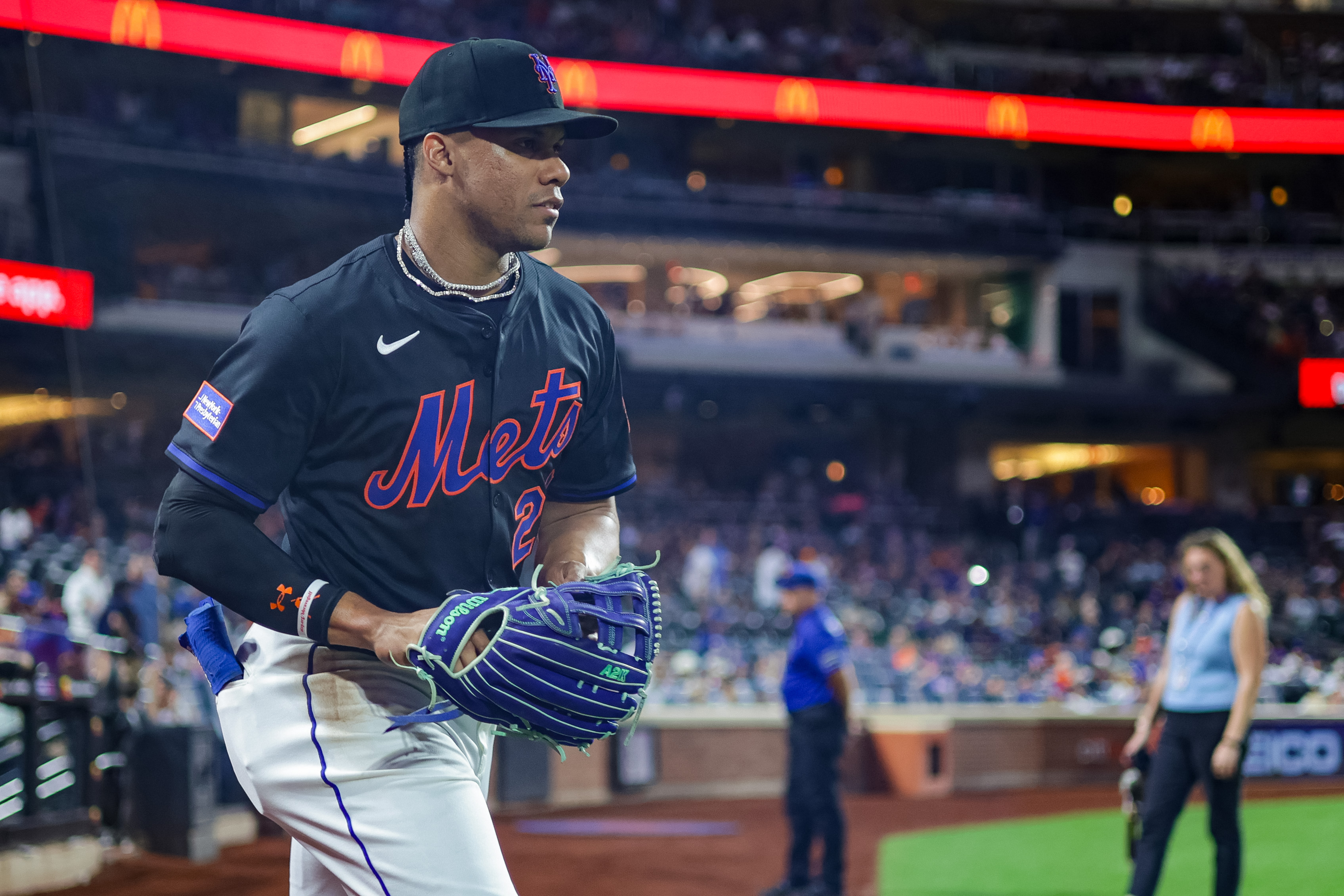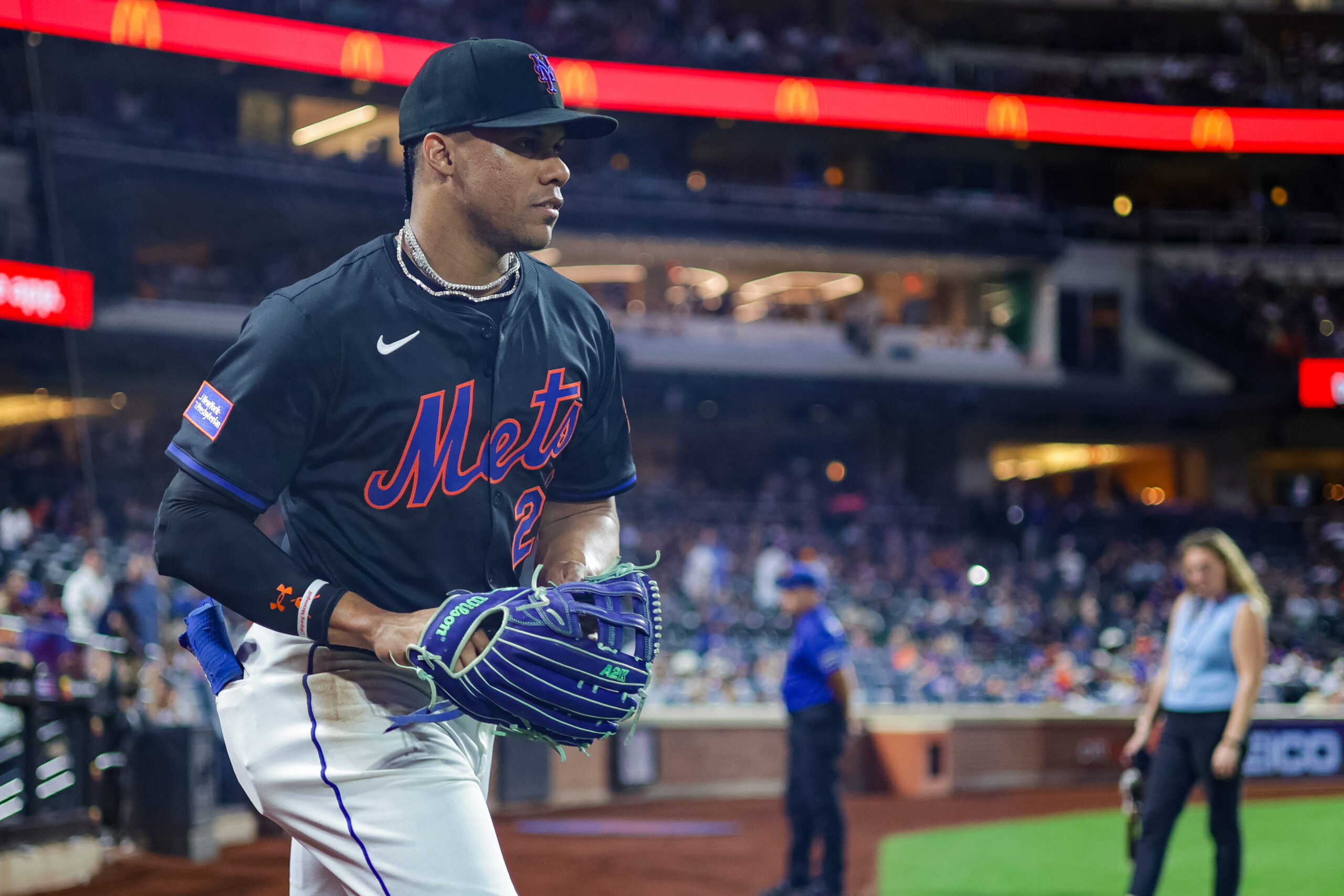Juan Soto’s MVP Snub: A Modern-Day David vs. Goliath Battle in Baseball’s Most Controversial Award Race
In the world of Major League Baseball, few awards carry as much prestige and controversy as the Most Valuable Player (MVP) award. This year, the spotlight shines brightly on Juan Soto, who, in his inaugural season with the New York Mets, has been named a finalist for the National League MVP alongside two heavyweights: Shohei Ohtani and Kyle Schwarber. The announcement of the winner on November 13 is poised to ignite fierce debates among fans, analysts, and players alike, as Soto’s remarkable offensive achievements stand in stark contrast to the multifaceted contributions of Ohtani, the two-time defending MVP.
Soto’s journey to this point has been nothing short of extraordinary. After a slow start to the 2025 season, where he posted a .745 OPS through May 28, he rebounded spectacularly, finishing the season with historic numbers: 43 home runs, 38 stolen bases, and 127 walks. These statistics not only highlight Soto’s offensive prowess but also position him as a unique talent in the league. He has become the first player in history to achieve such a combination of power and speed, showcasing his ability to impact the game in multiple ways.
However, the narrative surrounding Soto’s MVP candidacy is complicated by the presence of Shohei Ohtani. Ohtani, who has redefined what it means to be a two-way player in modern baseball, boasts an impressive 2.87 ERA over 47 innings pitched while also contributing significantly at the plate. While Soto’s offensive value is quantified at 7.0 bWAR compared to Ohtani’s 6.6, the debate hinges on the interpretation of “value.” Soto’s defensive struggles, which have placed him among the worst defenders in the league, contrast sharply with Ohtani’s dual-threat capabilities. This raises the question: can Soto’s offensive achievements outweigh the overall contributions of a player like Ohtani, who excels both as a pitcher and a hitter?
The implications of this MVP race extend beyond individual accolades. The Mets, a franchise that has yet to secure an MVP award, find themselves in a unique position. They are one of only three teams without an MVP, alongside the Arizona Diamondbacks and Tampa Bay Rays, both of which were established much later. The historical context of the MVP award adds another layer of complexity to Soto’s candidacy. Since 1990, only two players—Ken Griffey Jr. and Alex Rodriguez—have recorded a higher WAR than Soto’s 42.6 through their age-26 seasons without winning the MVP. Both players eventually claimed the award in their age-27 seasons, suggesting that Soto may still have time to secure the coveted title.
The narrative of Soto versus Ohtani also reflects broader themes in sports and society. It mirrors the age-old debate of individual brilliance versus team success, a discussion that transcends baseball and resonates in various aspects of life. Soto’s case can be likened to that of David facing Goliath, where the underdog’s exceptional talent is pitted against the established champion’s multifaceted skill set. This dynamic fuels passionate discussions among fans, with some arguing that Soto’s offensive feats should be enough to earn him the MVP, while others contend that Ohtani’s all-around contributions make him the rightful winner.
As the announcement date approaches, the tension surrounding the MVP race continues to build. Soto’s supporters point to his historic season as evidence of his value, while Ohtani’s defenders highlight the importance of versatility in today’s game. The outcome will undoubtedly spark debates that extend beyond the baseball diamond, touching on themes of meritocracy, recognition, and the evolving nature of what it means to be valuable in a team sport.
In the end, the MVP award serves as a reflection of the values and priorities of the baseball community. It challenges us to consider what we truly value in athletes: is it sheer offensive production, or is it the ability to contribute in multiple facets of the game? As fans await the announcement, one thing is clear: the 2025 MVP race has become a microcosm of larger societal discussions, making it one of the most compelling narratives in recent baseball history.

In his first season as a Met, Juan Soto has been named a finalist for the BBWAA National League Most Valuable Player award. Soto joins fellow finalists Shohei Ohtani (a two-time defending MVP) and Kyle Schwarber, with the winner set to be announced live on MLB Network on November 13.
It’s the third time Soto has finished Top 3 in MVP voting, having done so in 2021 with the Nationals and in 2024 with the Yankees. Soto started slow in 2025 by his superstar standards, putting up a .745 OPS through May 28; but when September came to a close, the 26-year-old had posted yet another historic campaign, becoming the first player to reach 43 homers, 38 stolen bases, and 127 walks in a single season.
Despite those mammoth numbers, Shohei Ohtani — like his team — is the favorite to repeat once again. On pure offensive value alone, Soto was worth 7.0 bWAR to Ohtani’s 6.6. But Soto was one of the worst defenders in baseball, while Ohtani, of course, recorded a 2.87 ERA in 47.0 IP for the Dodgers. While Soto may have been the greatest offensive force in the National League this season, there’s little doubt that Ohtani was the more valuable player overall. If Soto lands the runner-up spot over Schwarber, it will be the second consecutive year that a Met comes in second place to Shohei Ohtani, with Francisco Lindor having done so last season.
The Mets are one of just three franchises without an MVP award, and the other two (the Diamondbacks and Rays) were founded 36 years later in 1998. They will, however, have a bit of historical precedent working in their favor next season. Since 1990, only two players through their age-26 seasons recorded a higher WAR than Soto’s (42.6) without winning an MVP: Ken Griffey Jr. and Alex Rodriguez, both of whom finally took home the award in their age-27 seasons.

